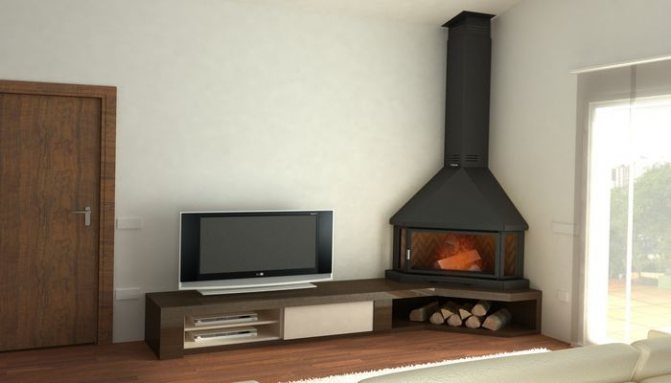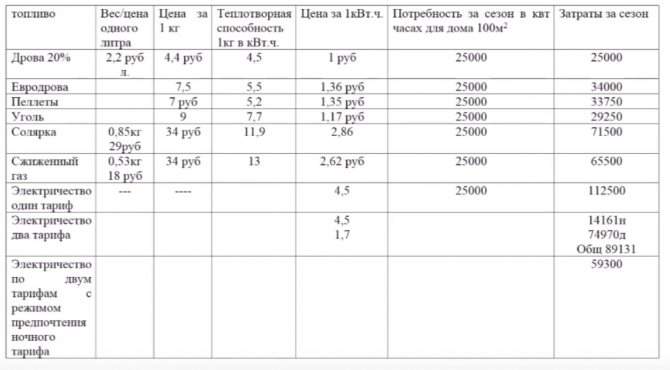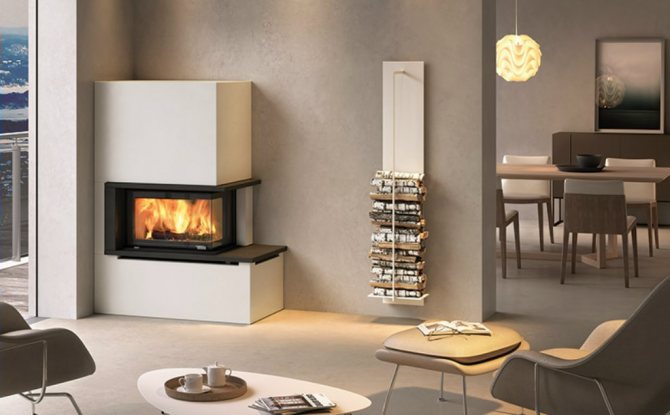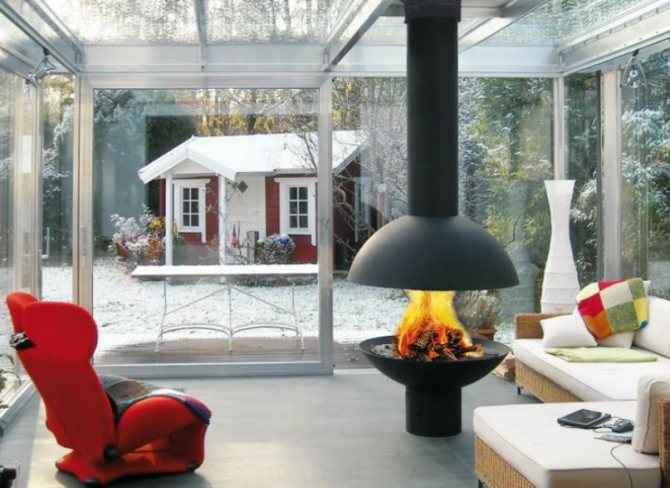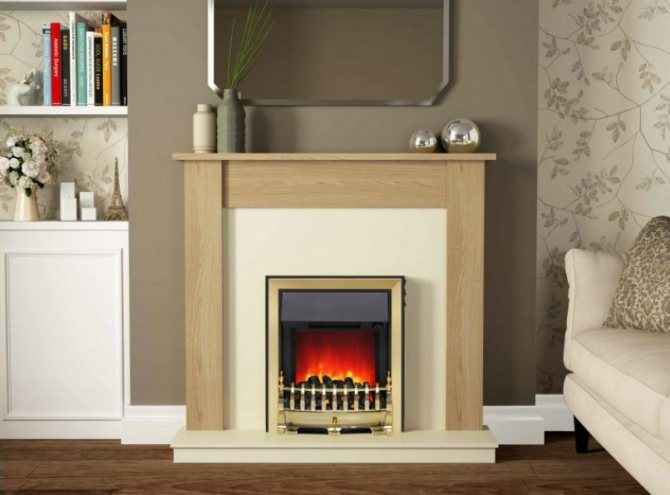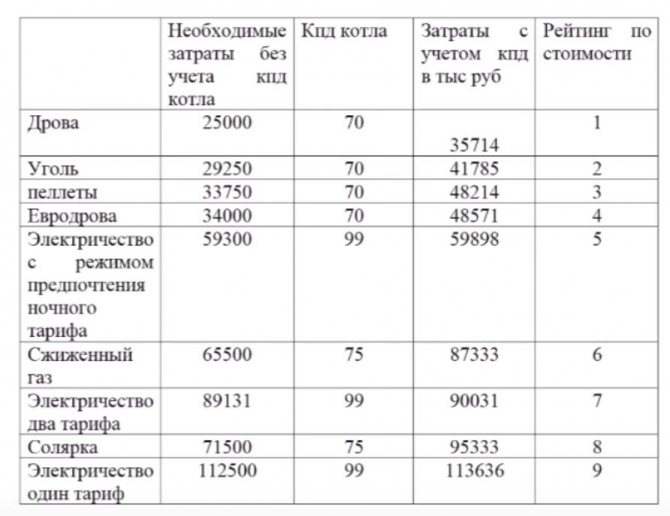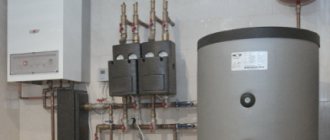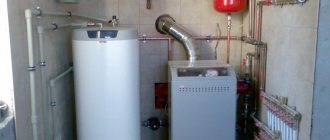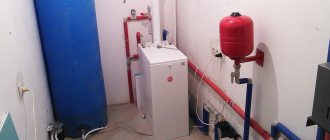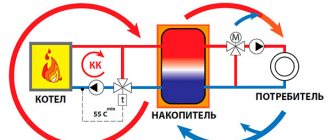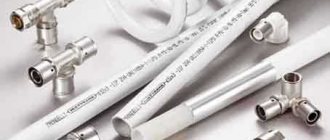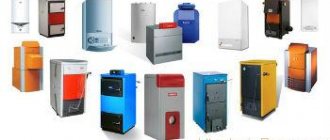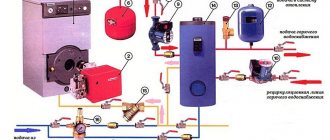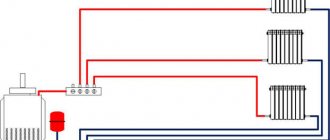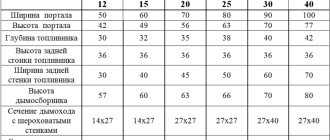As you know, the most efficient energy source for the heating system of a private house is mains natural gas. In addition, modern automated boiler equipment makes the use of gas simple and as safe as possible. But how to ensure cheap heating of the house if in the foreseeable future it is not possible to connect the house to the gas main?

The cheaper it is to heat a private house - we are looking for ways
Energy carrier selection principles
Economical heating of a private house is based on the cost and availability of the heat carrier. When choosing, one should be guided not only by the current situation (for example, the opportunity to get coal or diesel fuel at prices below the market average or receive free woodworking waste), but also sensibly assess the prospects.
If the house is without gas, you need to choose at least two alternative energy sources - for the main and backup heat source. This approach allows you to protect the house from serious problems associated not only with the low temperature in the living quarters, but also with the defrosting of the water heating system.
Before comparing the efficiency of energy carriers (excluding main gas), one should single out those types of fuel that are maximally available to the average consumer.
For example, a solar collector should be taken out of line, since it can be seriously considered only as an additional source of energy due to the fact that there are not many sunny days per year in the main territory of Russia, and besides, the equipment is not cheap.
Also, for now, let's leave the heat pump aside - it extracts free energy, but to get it, you need to use electricity. Plus, the system is difficult to install and requires serious costs for professional calculation and construction.
Thus, the list of available coolants is included
:
- liquefied gas in cylinders (installation of a gas tank requires a one-time investment of serious funds);
- diesel fuel (diesel fuel);
- electricity;
- ordinary firewood;
- coal;
- pellets;
- eurowood.
Attention! If there is access to such fuels as cheap peat briquettes, etc., their performance can be calculated for comparison using the method below.
Gas heating
First, you have gas should be held, which in itself costs money, and not small ones.
Secondly, for such an area, a boiler with a capacity of only 10 kW will be enough, that is, you do not need to buy for 20 - 25 kW, there is simply no need. You can still consider at 15 kW, nevertheless, if the boiler does not work at 100% load, its resource increases.
Third, at the moment gas costs about 2.5 - 3 rubles, it all depends on the geography of our homeland. I have 2.5 rubles in the city, so I will count at this rate.
Gas is a very “energy-consuming” product; a lot of heat is released during combustion! Heating boilers now have a very high efficiency (often it is not lower than 80 - 90%) - it takes up little space, works in an autonomous mode and practically does not require maintenance. As it becomes clear, the boiler itself cannot heat the room, it needs a heating system, usually cast-iron or aluminum batteries, which are "tied" to polypropylene pipes - rational decision.
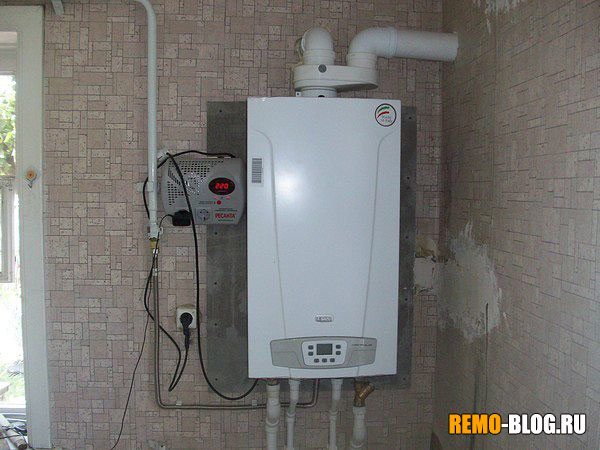

Well, that we have decided, we proceed to calculations for gas
I have a very clear example of such a house (it is not very well insulated, there are old places that need to be additionally insulated), about 10 - 12 cubic meters of gas per day (in cold weather), let's take 12 to the maximum.
If we deduce the final consumption, then 12 X 2.5 p = 30 p.Then in a month it turns out 30 X 30 days = 900 rubles! Tolerant!
Fuel cost calculation
To decide how to heat your home cost-effectively, you need to calculate the consumption of each available fuel.
Before proceeding with the calculations, it is important to understand the units of measurement of the amount of energy carrier and bring them into conformity, so as not to compare cubic meters with kilograms. In addition to electricity, all other fuels can be measured in kilograms.
Finding out the best way to heat a country house, it is useful to draw up the following table
:
| Energy carrier | Cost 1kg | Calorific value (kW / h for 1 kg of fuel) | Cost of 1 kW / h | The amount of heat required for a house with an area of 100 m2 for the heating season (kW / h) | Estimated costs per season | Boiler efficiency | Real costs per season |
| Propane | 13 | 21600 | 0.9 | ||||
| Diesel fuel | 11.9 | 21600 | 0.85 | ||||
| Firewood | 4.5 | 21600 | 0.75 | ||||
| Coal | 7.7 | 21600 | 0.75 | ||||
| Pellets | 5.2 | 21600 | 0.8 | ||||
| Eurodrova | 5.5 | 21600 | 0.75 | ||||
| Electricity (single rate scheme) | — | 21600 | 0.99 | ||||
| Electricity (multi-tariff scheme) | — | 21600 | 0.99 |
To choose the most economical heating of a private house, fill in the empty columns in the table.
This is done as follows
:
- Column 2. The cost of each energy carrier is entered, focusing on the current prices in the region of residence or the price at which you have the opportunity to get this fuel. Do not forget to convert units of measurement to kilograms (excluding electricity).
- Column 4. To calculate how much 1 kW of received heat energy will cost, it is necessary to divide the price of 1 kg of fuel by the specific calorific value (divide the value of column 2 by the value of column 3).
- Column 5. An approximate value is entered here (the length of the heating season is 180 days, the average heat consumption per hour is 5 kW for a house of 100 m2, hence 5 × 24 × 180 = 21600 kW / h). Replace it with a figure obtained from an accurate thermal calculation of your home.
- Column 6. Multiply the values in columns 4 and 5 to calculate the estimated cost per season.
- Column 8. Estimated costs must be divided by the efficiency factor of the boiler unit, since fuel consumption directly depends on the efficiency of the equipment.
So, by comparing the indicators in the last column, you can determine the cheaper it is to heat the house in your case.
However, when looking for the most economical way to provide warmth in your home, you need to take into account a number of other points so as not to be disappointed in your choice as a result.
The convenience of use
The heating system must be not only efficient and economical, but also comfortable to operate. The less hassle it is, the better, since the effort to keep it functioning is an indirect heating cost.
The convenience of using the fuel chosen to heat the house is assessed against very specific criteria.
:
- the complexity of servicing the heat source, its maintainability;
- the need for fuel storage and what is required for this;
- convenience of everyday use (fuel supply, etc.).
Note! Evaluating fuel according to the above criteria should take into account the characteristics of boiler units, etc. For example, a long-burning coal-fired boiler is incomparably more convenient than a conventional brick solid-fuel furnace. That is, first decide on the type of heater that you can afford.
Service
:
- The undoubted leaders are electric boilers, They are durable, the maximum they may require is sometimes to clean the oxidized contacts.
- Propane gas boiler - the equipment is unpretentious, cleaning the igniter, burner, etc. it takes about once every two years.
- Pellet boiler. Several times a year you will have to clean the combustion chamber, once a year - clean the chimney.
- Coal and wood-fired boilers, stoves - regularly require ash removal, but this indicator strongly depends on the design of the heater and can range from once a day to once every two months or more. May need frequent chimney cleaning.
- Diesel fuel boiler. Depends on the characteristics of the unit and the quality of the fuel - it can work, not inferior to the gas boiler, or it can constantly "be capricious", as a result of which it is necessary to systematically blow through the nozzles, etc.
Fuel storage
:
- Electricity does not require storage. However, in case of an emergency, it is recommended to have a diesel generator on the farm. And for this unit itself and the fuel for it, it is necessary to take a place.
- Heating in a private house with firewood, euro wood, pellets requires storage space, and in the case of fuel made from sawdust, this must necessarily be a dry, closed room. It is also recommended to store firewood protected from precipitation, since the higher the moisture content of the wood, the lower its heat transfer.
- Coal. Stored in a specially designated place, it gets very dirty and dusty, so it is not very convenient to use.
- Gas cylinders. They require storage in a separate building, fire safety measures must be taken. Preference should be given to an underground reservoir - a gasholder.
- Containers with diesel fuel. They are stored in a separate room in the boiler room, away from home, as the fuel has a strong unpleasant odor. However, today it is not uncommon for a tank with diesel fuel to be mounted underground, like a gas tank. This makes the system more convenient to use, but at a higher cost.
The convenience of use
:
- It is most convenient to heat with electricity, since the heating equipment does not require any intervention.
- Pellet boilers are filled with fuel about once every two weeks or less often (depending on the volume of the bunker), with about the same frequency they change the cylinders when heating with liquefied gas. A long-burning coal boiler can also operate on one refueling for 1-2 weeks.
- The diesel boiler should be checked regularly, especially if the fuel quality is poor.
- Solid fuel boilers require loading the firebox 1-3 times a day.
Give your own rating from 1 to 5 for each type of fuel (or heating unit) in all the above categories. And determine for yourself whether the most economical heating is always preferable to the more expensive but convenient one.
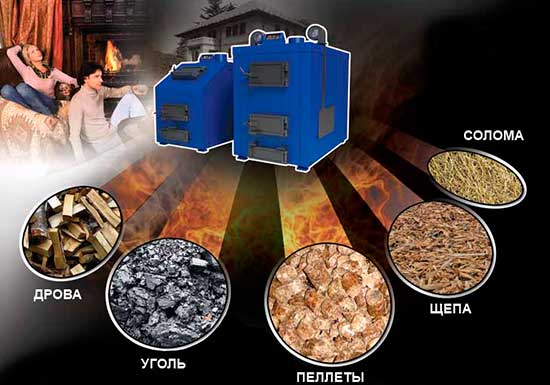

We figure out how to heat a country house (cottage) without gas
When choosing cheap heating of a private house, also pay attention to such a characteristic of the boiler unit as energy independence. If it is decided to provide heating of a private house without gas using an electric boiler, for example, a solid fuel non-volatile boiler or stove should become a duplicate heat source.
Boiler unit to heat the house
When choosing the more profitable to heat the house, one should not forget about the costs of installing the heating unit. It is not always important how cheap an energy carrier is, as the equipment for using it (or generating it, if we are talking about solar energy, etc.) can be expensive. Let's give an approximate range of prices for heating equipment of different types in order to determine which one is more profitable to choose.
Brick oven with a stove. 20-100 tons and more, depending on the size, type, complexity of the structure, the presence of tiled cladding, etc. A well-made stove is ideal for a wooden house; it can last for several decades.
Oil-fired boiler. The cost of the unit is 25-180 tons. Many models are suitable if a house heated with diesel fuel is planned to be connected to the gas main - it is enough to replace the burner at the boiler and no new equipment will be required.
Solid fuel boilers. 20-400 tr.An inexpensive option will require frequent refueling. Long-burning boilers are included in the middle price category. Automated units require a large investment during the installation phase.
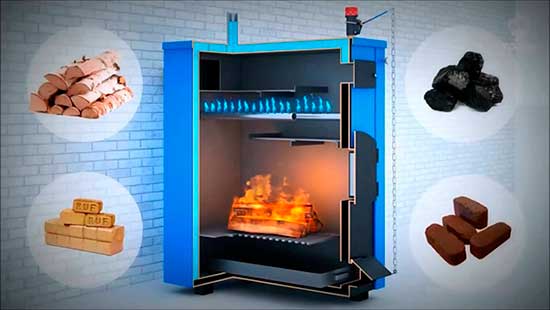

Choosing a boiler unit
Electric boilers. 15-100 tr. depending on the power of the model. If the region has a cheap nightly electricity tariff, it is possible to partially reduce heating costs by installing a heat accumulator complete with an electric boiler. In addition, when choosing how to heat the house, if there is no gas, you can pay attention to other heat sources that run on electricity: infrared heaters, fan heaters, film warm floor, air heating system, etc.
Solar collectors. 15-60 tr. - the cost of flat devices, about 80 tr. - vacuum. The energy of the sun is inexhaustible, but even in areas with a large number of sunny days of the year, solar collectors serve only as an additional source of thermal energy for heating or preparing water in the DHW system.
Heat pumps. RUB 200-1500 depending on the complexity of the system. The heat pump takes heat energy from the environment. For its operation, starting energy is required, on average, to deliver 10 kW of thermal energy, it spends 3 kW of electricity - this is high efficiency. But the heat pump is also not universal, since it can operate stably only at an air temperature of at least -15 degrees, and completely loses its performance at -30 degrees. In temperate regions, a heat pump would provide the cheapest heating, if not for a serious initial investment.
Outcomes
Everyone chooses the most economical heating based on specific conditions, there is no universal advice on this matter. A good option is an electric boiler in combination with any other unit, primarily solid fuel. A heat accumulator, to which you can connect several different heat sources, including a solar collector, is a real opportunity to spend a minimum of money on heating.
In addition, one should not forget about high-quality insulation at home. It will be possible to save on fuel only if heat loss is minimized.
Related videos:
Heating with electricity
For such systems, complex engineering networks are not needed, in fact, just ordinary poles with electricity distribution - this makes such systems very attractive.
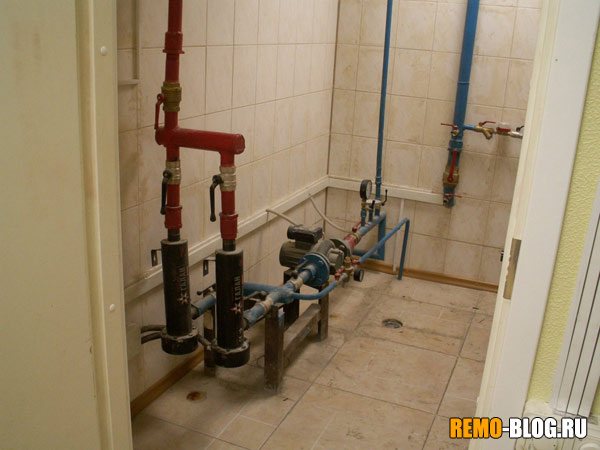

I would like to note right away that now there are a lot of systems that seek to make electric heating cheaper and more efficient, I will list them point by point:
- TEN boilers are a boiler in which there are electric heating elements, and it, like a gas, heats the coolant (usually water or antifreeze) in the system.
- Electrode boilers, instead of heating elements, special plates are used there, which heat water more efficiently.
- Separate heating elements, we just cut into each battery.
- Warm floors, there are both film and wired. Usually they are laid in the floor, or in the version with a film, they are hung on the ceiling under the main covering.
- Infrared heaters. The form of panels that are hung on the wall and heat the room with infrared radiation.
You can still list for a very long time, now there are still a lot of varieties, and each manufacturer wants to declare that he has invented just "know-how". But in fact, again, it all depends on how your house is insulated! The walls must be warm - otherwise you will simply heat the street.
Now a kilowatt of electricity costs about 3 rubles (I take the national average).
Okay, let's assume - that some manufacturers still managed to reduce energy consumption to 80 W - meter, while giving off heat like gas at 100 W - meter.
We have already decided that our heating works for 12 hours. Then we multiply 80 W by 100 meters = 8 kW / hour. And since we heat the house for 12 hours, then: - 8 X 12 = 96 kW per day!
If you knock it out for the money, then it is - 96 X 3 rubles.= 288, per month 288 X 30 = 8640 rubles! Just FUCK!
Not very profitable heating!
